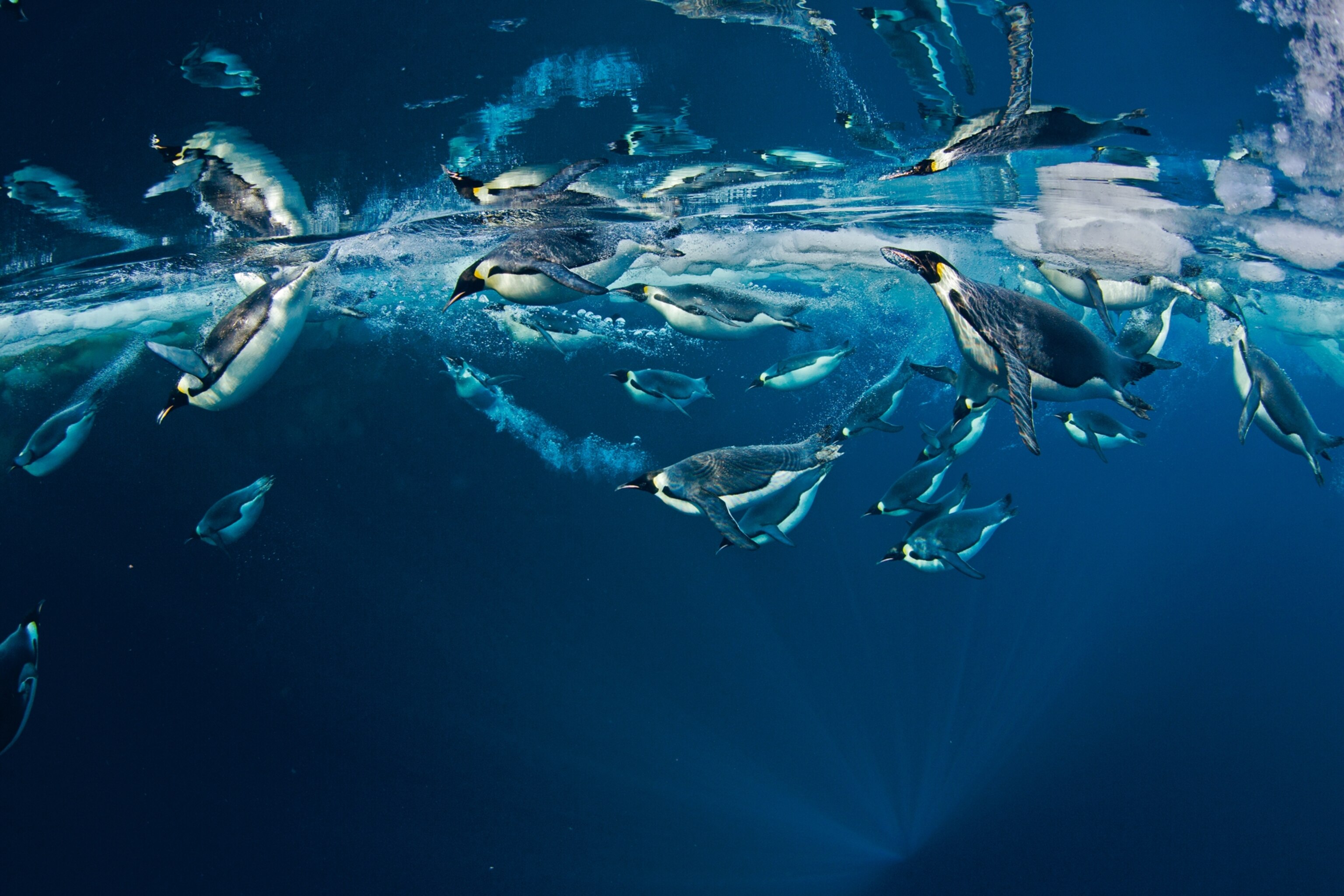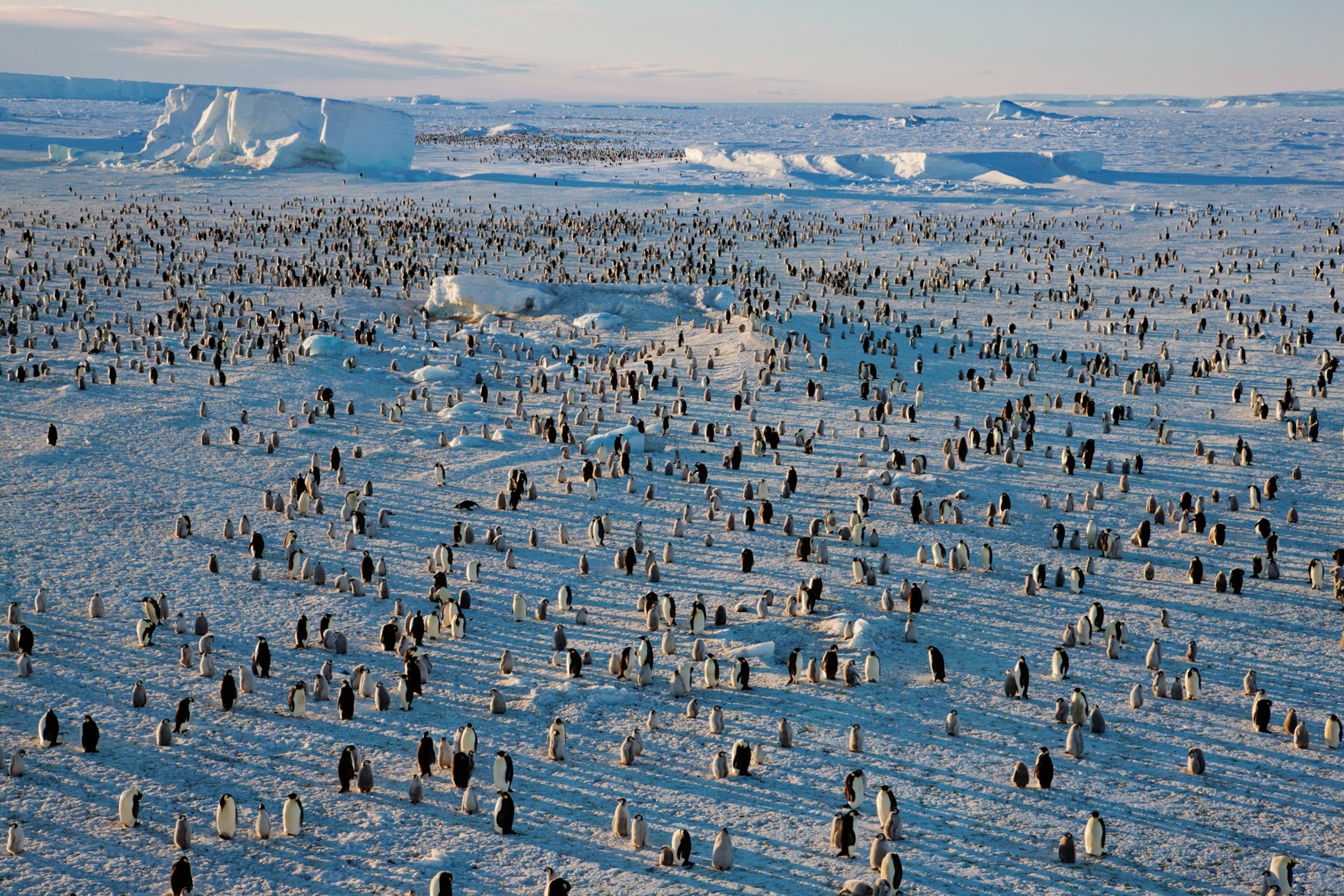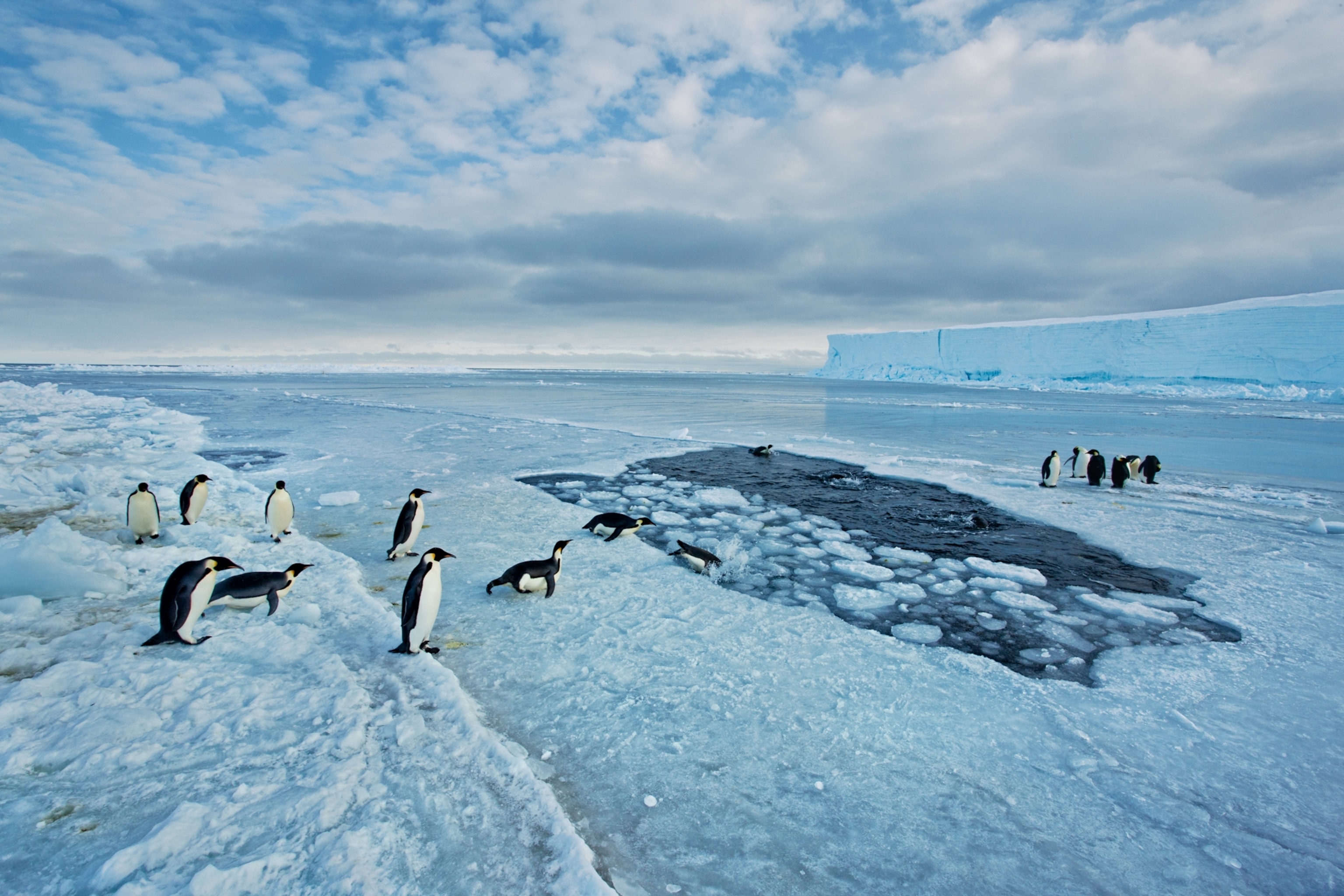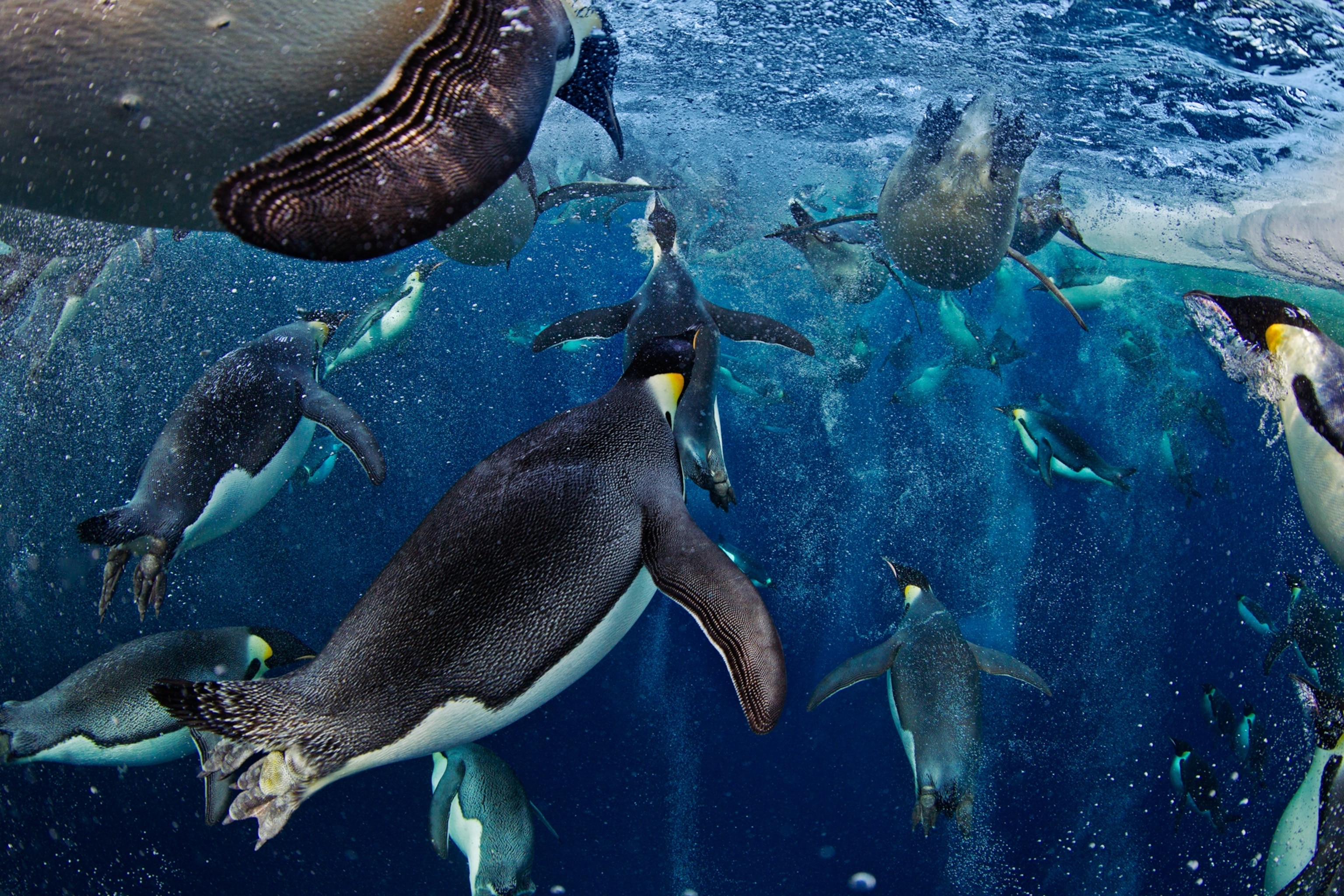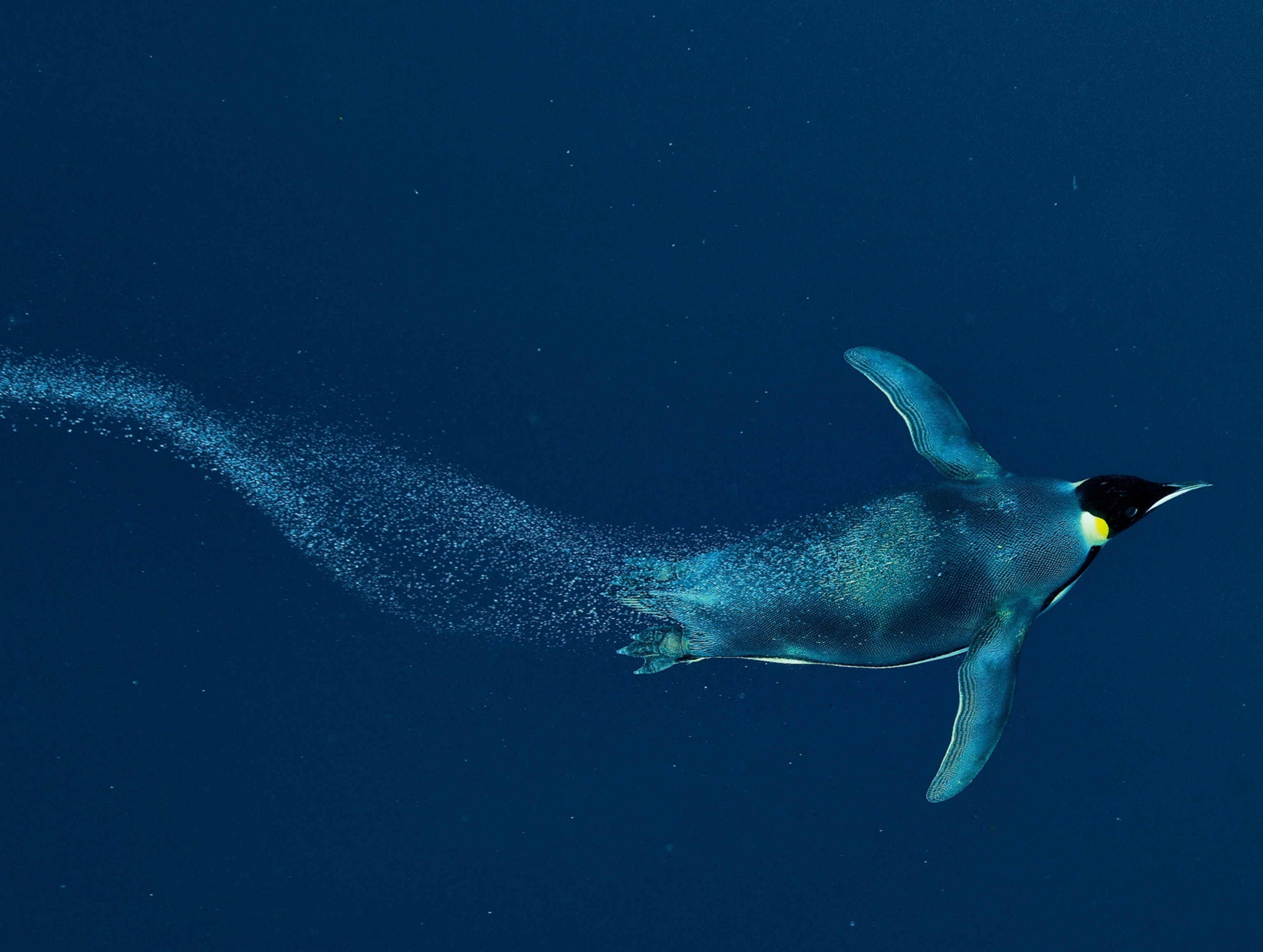Escape Velocity
Awkward on land, emperor penguins soar through the sea. Now scientists have discovered the secret of their speed.
Roger Hughes has never seen emperor penguins in the wild. But when he saw them in a BBC documentary, rocketing through the sea with trails of bubbles in their wakes, he had an insight that would lead to a surprising discovery. A marine biologist at Bangor University in north Wales, Hughes had recently been talking with his wife about the lubricating properties of new competitive swimsuits. He wondered: Maybe those bubbles help penguins swim faster.
Over beer in a pub, Hughes bounced his hypothesis off his friend John Davenport, a marine biologist at University College Cork in Ireland. “Roger thought I’d have the answer straightaway,” says Davenport, who studies the relationship between animals’ body structures and their movements. But he didn’t know what the bubbles did for the penguins. It turns out no one else knew either. The two men combed the scientific literature and found that the phenomenon had never even been studied. So they decided to do it themselves.
With the help of Poul Larsen, a mechanical engineer at the Technical University of Denmark, they analyzed hours of underwater footage and discovered that the penguins were doing something that engineers had long tried to do with boats and torpedoes: They were using air as a lubricant to cut drag and increase speed.
When an emperor penguin swims through the water, it is slowed by the friction between its body and the water, keeping its maximum speed somewhere between four and nine feet a second. But in short bursts the penguin can double or even triple its speed by releasing air from its feathers in the form of tiny bubbles. These reduce the density and viscosity of the water around the penguin’s body, cutting drag and enabling the bird to reach speeds that would otherwise be impossible. (As an added benefit, the extra speed helps the penguins avoid predators such as leopard seals.)
The key to this talent is in the penguin’s feathers. Like other birds, emperors have the capacity to fluff their feathers and insulate their bodies with a layer of air. But whereas most birds have rows of feathers with bare skin between them, emperor penguins have a dense, uniform coat of feathers. And because the bases of their feathers include tiny filaments—just 20 microns in diameter, less than half the width of a thin human hair—air is trapped in a fine, downy mesh and released as microbubbles so tiny that they form a lubricating coat on the feather surface.
Though feathers are not an option for ships, technology may finally be catching up with biology. In 2010 a Dutch company started selling systems that lubricate the hulls of container ships with bubbles. Last year Mitsubishi announced that it had designed an air-lubrication system for supertankers. But so far no one has designed anything that can gun past a leopard seal and launch over a wall of sea ice. That’s still proprietary technology.



